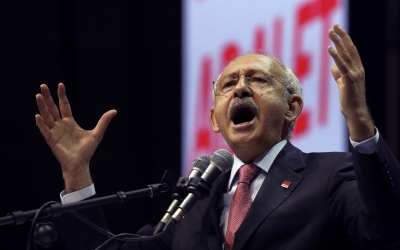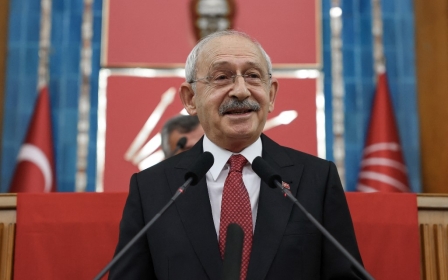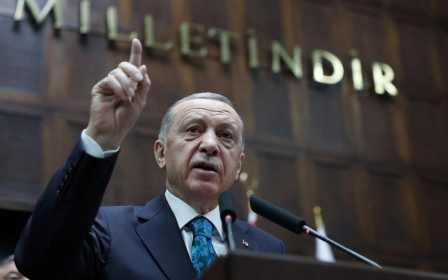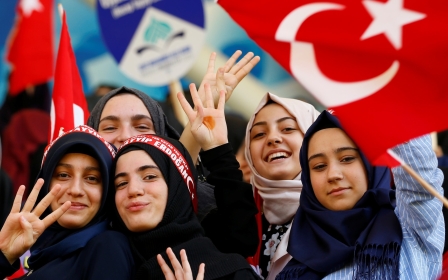Turkey elections: CHP draws anger by running former Erdogan allies on electoral lists
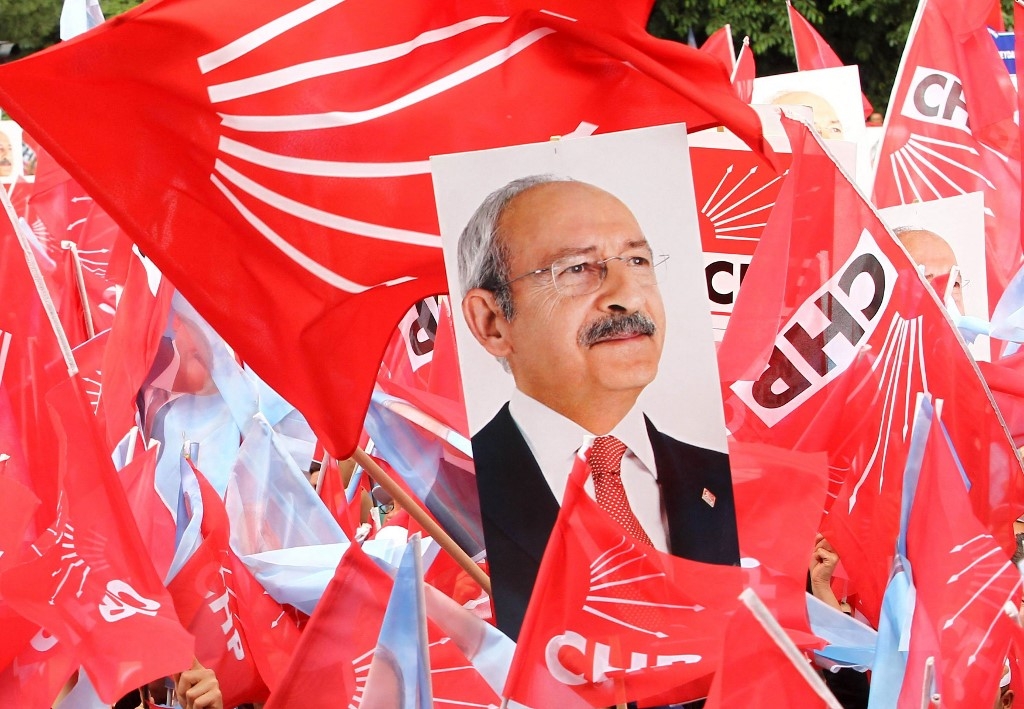
Turkish political parties submitted their final lists of candidates for parliament on Sunday and the presence of various former ruling party officials on the opposition's lists has caused considerable controversy.
The centre-left Republican People’s Party (CHP) struck a deal with the smaller right-wing parties in its Nation Alliance opposition coalition on Friday, and will now run the parties' candidates under its own list on 14 May, when Turkey holds presidential and parliamentary elections.
In return, the Future Party (Gelecek), Felicity Party (Saadet), Democracy and Progress Party (Deva), and Democrat Party (DP) won’t join the race separately and their names will not appear on the ballot for the 600 parliamentary seats.
The CHP nominated 76 candidates from amongst its right-wing political allies, at least 30 of which are in places where their victory is likely.
It's the first time in the party's history the CHP has given space to these right-wing politicians - many of whom were once its opponents and former members of Turkish President Recep Tayyip Erdogan’s ruling Justice and Development Party (AKP).
Kemal Kilicdaroglu, CHP chairman and the Nation Alliance's presidential candidate, believes in alliance-building to gain more votes and wants the opposition's smaller parties to maintain a parliamentary presence.
The right-wing parties initially wanted to create a separate joint list to obtain around 20 seats, but couldn’t reach an agreement.
However, some of the right-wing candidates chosen, such as former AKP Justice Minister Sadullah Ergin, now a senior official at Deva, have drawn particular anger from CHP supporters.
“Sadullah Ergin was nominated from CHP 1st District (Çankaya). Shame on him. We haven't forgotten what he did during the 'sledgehammer trial',” lawyer Sule Nazlioglu Erol tweeted, referencing a 2010 alleged coup plot where former high-ranking military officers were arrested while Ergin was justice minister.
After years of trial, the suspects were acquitted and released from prison in 2015 when the evidence against them was found to have been faked.
The government accused Pennsylvania-based cleric Fethullah Gulen and his followers, who were in alliance with then-prime minister Erdogan until 2014, of infiltrating the judiciary and planting fraudulent evidence.
“There are no more votes taken as granted anymore. I’m asking the sledgehammer victims who live in Ankara. Will you vote for the list that his man is running with? I will never,” Erol added.
Many others on social media were quick to bring up a 2014 tweet by Kilicdaroglu accusing Ergin of placing pressure on judges for political means.
Another candidate, Sema Silkin Un from Gelecek, has also been the subject of negative commentary online. The former private secretary of Erdogan's wife, Emine, is running under a CHP list in the city of Denizli.
“This candidacy has caused a serious disturbance in the CHP,” Altan Sancar, a Turkish journalist, tweeted. “She will be one of the two candidates that the CHP cannot explain to its base. It is such a candidacy that there are even discomforts from her own party.”
That the Democrat Party’s Cemal Enginyurt, a Turkish nationalist who used to support the government, now running under a CHP ticket in Istanbul, is also raising eyebrows.
'Heathen' and 'racist'
Past interviews where he proudly declares his backing of Erdogan have gone viral on social media, including one where he described a senior CHP official as a "heathen".
Muharrem Ince, a presidential candidate who established the breakaway Homeland (Memleket) party after splitting from the CHP, criticised his former colleagues for running with ex-AKP figures and said CHP supporters should vote for his party instead.
Ince compared his own candidates with the CHP's, saying that his Homeland colleagues are republicans, Kemalists, and well-educated.
He cited Cuneyt Oguz in Izmir as an example. “Against him is a former writer of the operational newspaper Taraf, who says, 'Kemalism is racism'," he tweeted.
Ince is poised to win around nine percent in the presidential race, which would effectively trigger a runoff between Erdogan and Kilicdaroglu.
His party also needs to win at least seven percent of the national vote to gain seats in the parliament, due to legal limitations against smaller parties.
Middle East Eye propose une couverture et une analyse indépendantes et incomparables du Moyen-Orient, de l’Afrique du Nord et d’autres régions du monde. Pour en savoir plus sur la reprise de ce contenu et les frais qui s’appliquent, veuillez remplir ce formulaire [en anglais]. Pour en savoir plus sur MEE, cliquez ici [en anglais].


